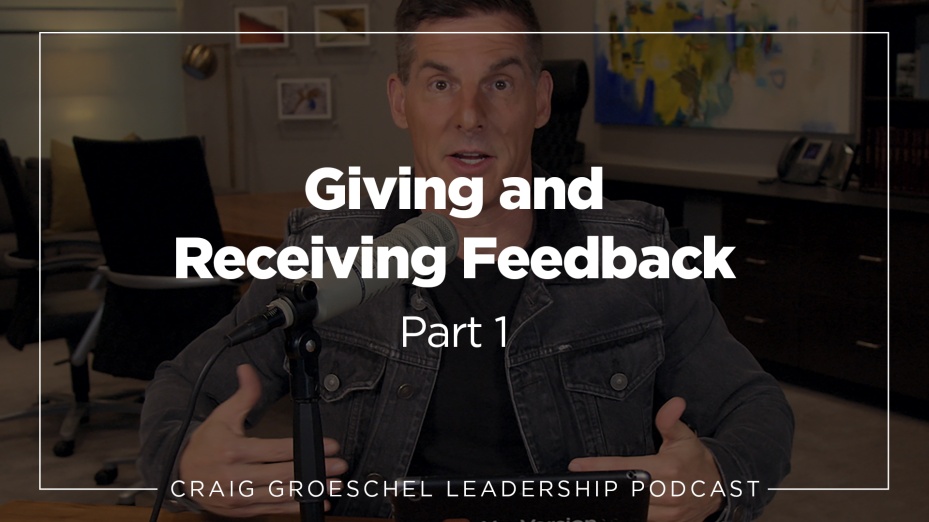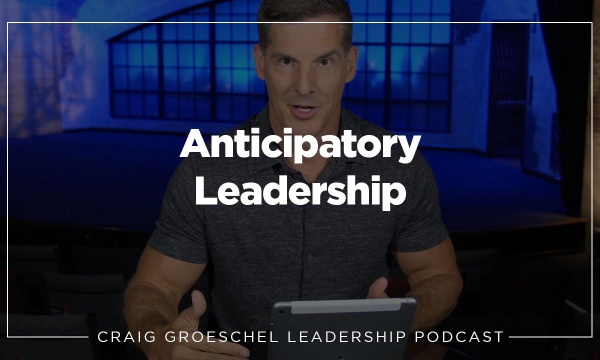Without a doubt, one of the most important tools to develop in your organization is a consistent culture of feedback. Many of us want to know when we are doing something right, but we might also fear or avoid hearing feedback when we’re not.
What’s interesting is that most people don’t know how to give helpful feedback. What’s equally challenging is that many people don’t know how to receive it, either. We receive feedback every day. All our lives, we’ve been graded, ranked, rated, scored, chosen, accepted, rejected, invited, and left out. How you handle that feedback, and how you use it to create a healthy culture, is vital to the success of your team. Here are three factors that matter when you’re receiving feedback.
- Don’t dread feedback. Crave it. Feedback helps us grow. Feedback can’t be something we endure. Feedback is something we have to embrace.
- Separate the “do” from the “who.” One reason we don’t like feedback that tells us how to improve is that we feel it’s is a critique of who we are. That’s not the case when it comes to good feedback. It’s about performance and actions, not identity. When you find yourself getting defensive, you’re likely hitting a trigger. The more you push back, the more you might need to listen instead.
- Ask clarifying questions. “Have any feedback for me?” is a terrible question to start with. General questions rarely lead to specific answers. General questions rarely lead to specific feedback. You’re going to hear some things you don’t like. When that happens, don’t get defensive. Instead, train yourself to say things like “Tell me more” or “Help me understand.” And don’t just wait for feedback, seek it out! It will make you better, and it will show that you value those around you.
To quote Andy Stanley, “Leaders who don’t listen to others will eventually be surrounded by people who have nothing to say.”
Remember, you don’t have to know it all to be a great leader! Be yourself. People would rather follow a leader who is always real than one who is always right.
DISCUSSION QUESTIONS
Here's an exercise you can do to grow as a leader—ask your team these questions:
- On a scale of 1-10 (ten being the highest), how strong is your team at giving and receiving feedback? What could you do specifically to improve your feedback culture?
- In what area of your leadership could you use helpful feedback? Who are three people you could enlist to help develop you to improve?
- What are three specific questions you could ask them to help you grow?
- Is there an area of your leadership that you could get feedback in before game time? What are you going to do about it?
- What is the number one skill you are currently developing based on recent feedback? If you can’t answer this question directly and immediately—you know you have work to do.
LISTENER QUESTIONS
Have a question for Craig? Email him at leadership@life.church.
I have been listening to your podcast and I know I am a controlling leader. What are specific ways I can change this? - Priscilla
Congratulations on admitting this! You cannot change what you can’t define!
A controlling leader can become the biggest hindrance to an organization’s progress, and the best way to lose control is to try to control everything. Over time, excessive control kills morale, productivity, and innovation. Good leaders find it difficult to grow under a controlling leader. The best leaders won’t stay under a controlling leader.
Priscilla, Start with baby steps. Find something you are controlling and trust it to someone else. At first, they might not do as well as you, but over time, with the right coaching, you'll find that the right person can do better than you ever have!
As a leader, you want to give more and more away. You can grow from being a control freak to being an empowering and trusting leader over time!
I am looking for a good process to assimilate people who are ready for leadership. What is the process and how can we implement it? We are a year old and ready to build a leadership bench and define our pipeline process. - Rodrigo
Rodrigo, my answer may frustrate you. The goal isn’t to create a leadership track or training or process. The goal is to create a culture that builds leaders.
For example, there are some things we may want everyone to do, like read and discuss certain books, learn about the Myers-Briggs Type Index, study and grow in Emotional Intelligence, or develop in their interviewing skills. Those are a few things we define that are formal, but we have dozens or even hundreds that are informal.
My advice would be to pick a few things that you want everyone to experience so your team has shared language and knowledge. When you do that, you create a culture where everyone is developing everyone. You want leaders who, on their own, are forming mentor relationships, starting reading groups, attending conferences, sharing articles, and giving good feedback.
Don’t live under the illusion that a leadership program is the goal. The goal is a culture that trains and empowers leaders.
EPISODE RESOURCES
Leave a Review: www.go2.lc/leadershippodcastitunes
Catalyst One Day: www.catalystconference.com/oneday
Watch Life.Church messages: www.life.church/watch
More from Craig: www.craiggroeschelbooks.com
Free church resources & tools: www.life.church/churches
Sheila Heen and Douglas Stone, Thanks for the Feedback: The Science and Art of Receiving Feedback Well
Carolyn S. Dweck, Mindset: The New Psychology of Success
CONNECT WITH CRAIG
Ask questions: leadership@life.church
Facebook: www.facebook.com/craiggroeschel
Twitter: @craiggroeschel
Instagram: @craiggroeschel
Snapchat: @craiggroeschel
Periscope: @craiggroeschel



